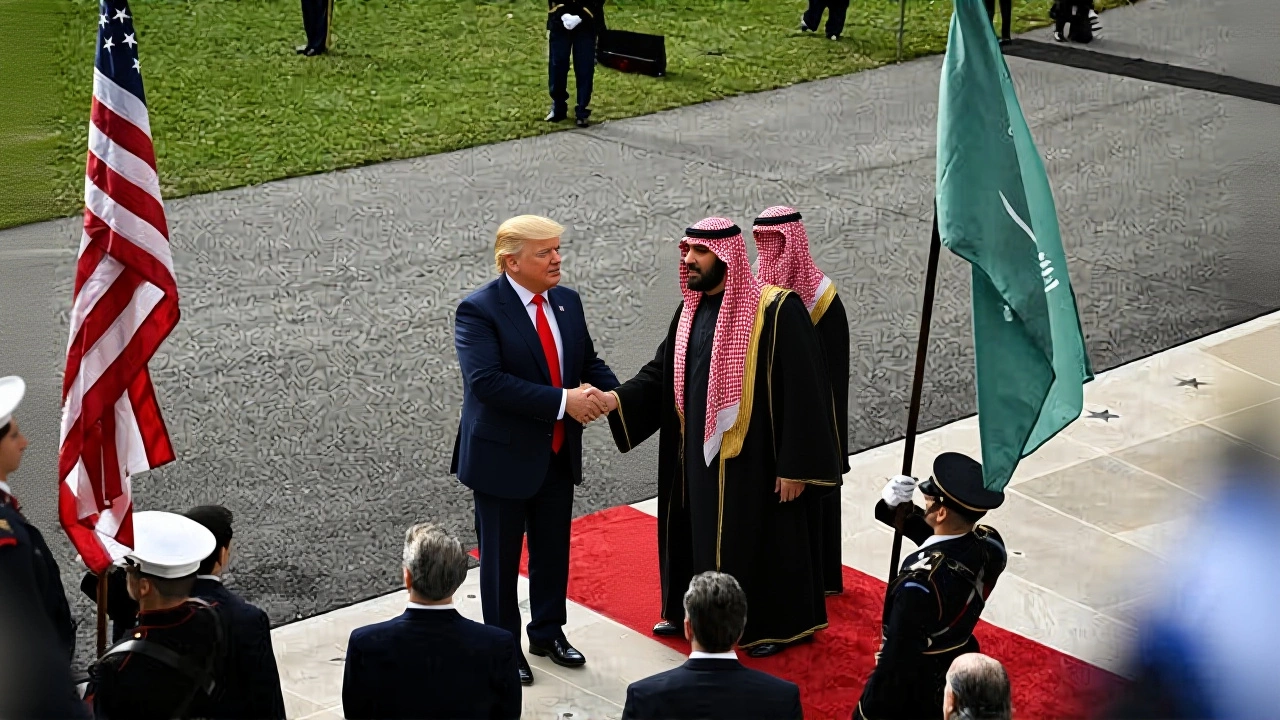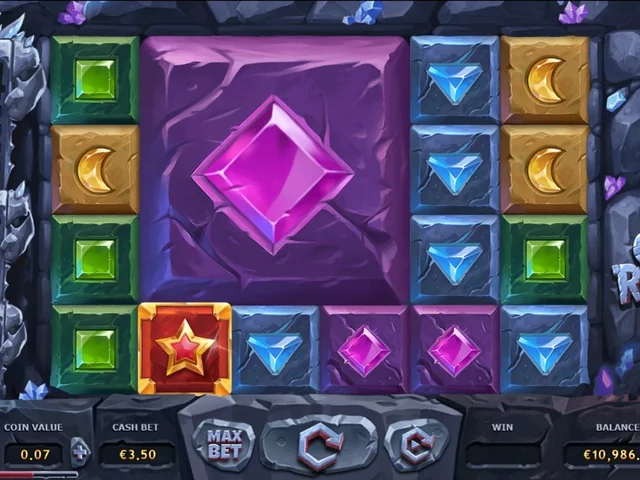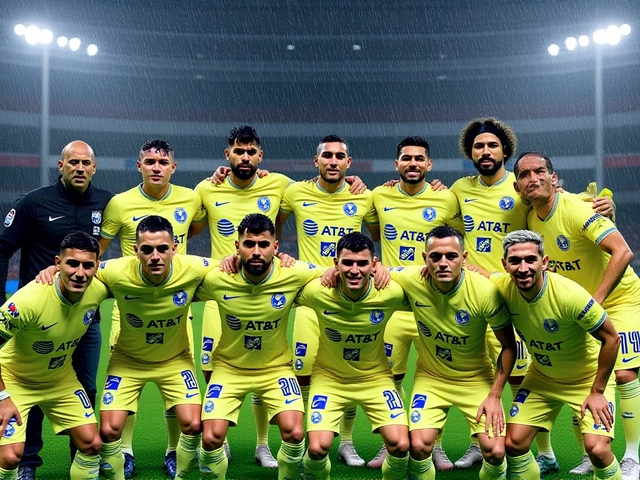When Donald Trump leaned across the Oval Office table and asked, "So you're saying the $600 billion will be $1 trillion?", Mohammed bin Salman didn’t hesitate. "Definitely," he replied. "Because what we are signing, it will facilitate that." It was the moment the air in the room changed — not because of the words, but because of what they meant: a historic economic pivot between two of the world’s most powerful nations. The exchange, captured in real time during their November 18, 2025, bilateral meeting at the White House, wasn’t just a handshake deal. It was the culmination of a two-day diplomatic blitz that redefined U.S.-Saudi ties in the post-oil era.
A Night of Power and Protocol
The formal black-tie dinner on November 18, 2025, held in the East Room of the White House, was more than ceremony. It was theater with substance. With 137 guests — including Senate Majority Leader Mitch McConnell, Secretary of State Marco Rubio, and CEOs from Boeing, Halliburton, and Aramco — the evening blended diplomacy with high finance. The meal, curated by White House chef Cristeta Comerford, featured lamb from Saudi desert pastures and bourbon aged in Texas oak — a subtle nod to mutual heritage. The event began at 7:30 p.m. EST and stretched past 10:15 p.m., with Trump and Mohammed bin Salman seated side by side, exchanging quiet remarks between courses. First Lady Melania Trump engaged Saudi Crown Princess Reema bint Bandar in conversation about women’s entrepreneurship in Jeddah — a topic rarely discussed at such high-level state dinners.The Deal That Moved Markets
The $1 trillion commitment — up from the previously negotiated $600 billion — wasn’t a guess. It was the result of months of behind-the-scenes negotiations between U.S. Treasury officials and Saudi sovereign wealth fund executives. The funds will be allocated across four pillars: artificial intelligence infrastructure in Texas and Nevada, civil nuclear technology transfer, U.S. defense procurement contracts, and joint ventures in renewable hydrogen production. The Saudi delegation, led by Finance Minister Mohammed Al-Jadaan and AI Chief Abdullah Al-Saud, signed six memoranda of understanding during the visit. One, the U.S.-Saudi Strategic Technology Partnership Act, allows Riyadh to access U.S. AI chip manufacturing tech under strict safeguards — a major shift from past export controls. Another, the Nuclear Energy Cooperation Framework, opens the door for American firms like Westinghouse and NuScale to assist Saudi Arabia in developing a civilian nuclear program — something the Saudis insist is for energy, not weapons. "This isn’t about oil anymore," said one senior U.S. official, speaking off-record. "It’s about who controls the future. And right now, Riyadh is betting hard on tech, not just crude."Peace in the Middle East: A Shared Vision?
When Trump asked if Saudi Arabia still supported the Abraham Accords, Mohammed bin Salman didn’t just nod. He expanded. "We want peace for the Israelis, we want peace for the Palestinians. We want them to coexist peacefully in the region, and we will do our best..." His words were carefully chosen — no mention of Jerusalem, no demands for preconditions. Just a clear, unambiguous alignment with U.S. goals. The Saudi leader’s stance surprised even Israeli diplomats, who had privately feared Riyadh would use normalization as leverage for Palestinian statehood. Instead, Saudi Arabia signaled it would help broker direct talks between Tel Aviv and Ramallah — a role it has quietly played since 2023. "They’re not waiting for the U.S. to lead," said a former U.S. Middle East envoy. "They’re stepping into the vacuum."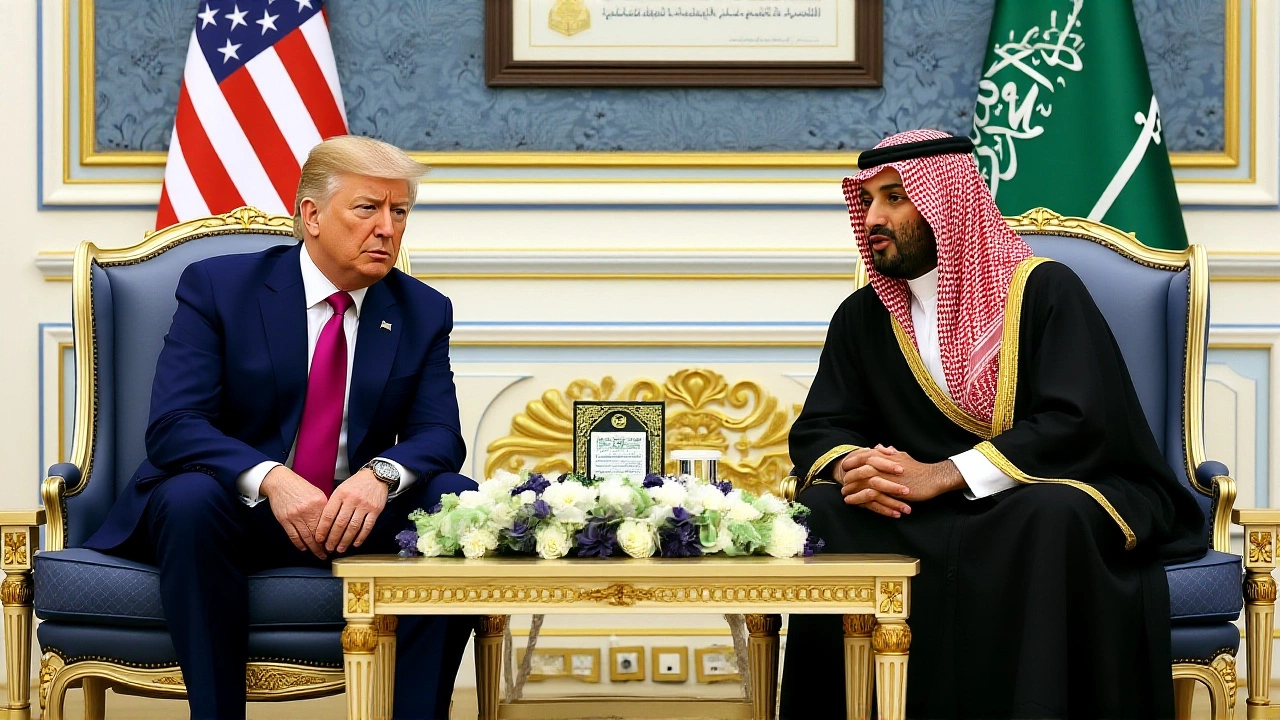
Iran: The Elephant in the Room
Trump didn’t let the moment pass. "And by the way, Iran does want to make a deal," he said. "I can say I think they very badly want to make a deal. I am totally open to it." That comment sent shockwaves through Capitol Hill. Just weeks earlier, the U.S. had imposed new sanctions on Iran’s Revolutionary Guard for drone attacks on U.S. bases in Iraq. But Trump’s openness to negotiations — even as the White House continues military pressure — suggests a dual-track strategy: isolate Tehran militarily while offering a diplomatic off-ramp. Saudi Arabia, long the most vocal regional opponent of Tehran, signaled tacit support. "We have always believed diplomacy is better than war," said Mohammed bin Salman. "But only if the deal is strong."What Comes Next?
The farewell ceremony on the South Lawn at 6:00 p.m. EST marked more than the departure of a guest. It was the launch of a new chapter. The Saudi royal jet, a Boeing 747-800 operated by Saudia Royal Flight, lifted off from Andrews Air Force Base just after 7:00 p.m., carrying home the signed agreements and a new sense of momentum. In the coming weeks, Congress will receive a formal request to approve the nuclear cooperation framework — a move that could trigger fierce debate over nonproliferation. Meanwhile, Wall Street is already pricing in the $1 trillion investment. Goldman Sachs estimates it could add 0.8% to U.S. GDP over five years. Saudi Aramco announced a $20 billion expansion of its U.S. refining capacity in Texas, while U.S. tech giants like Microsoft and NVIDIA confirmed new AI data centers in Riyadh.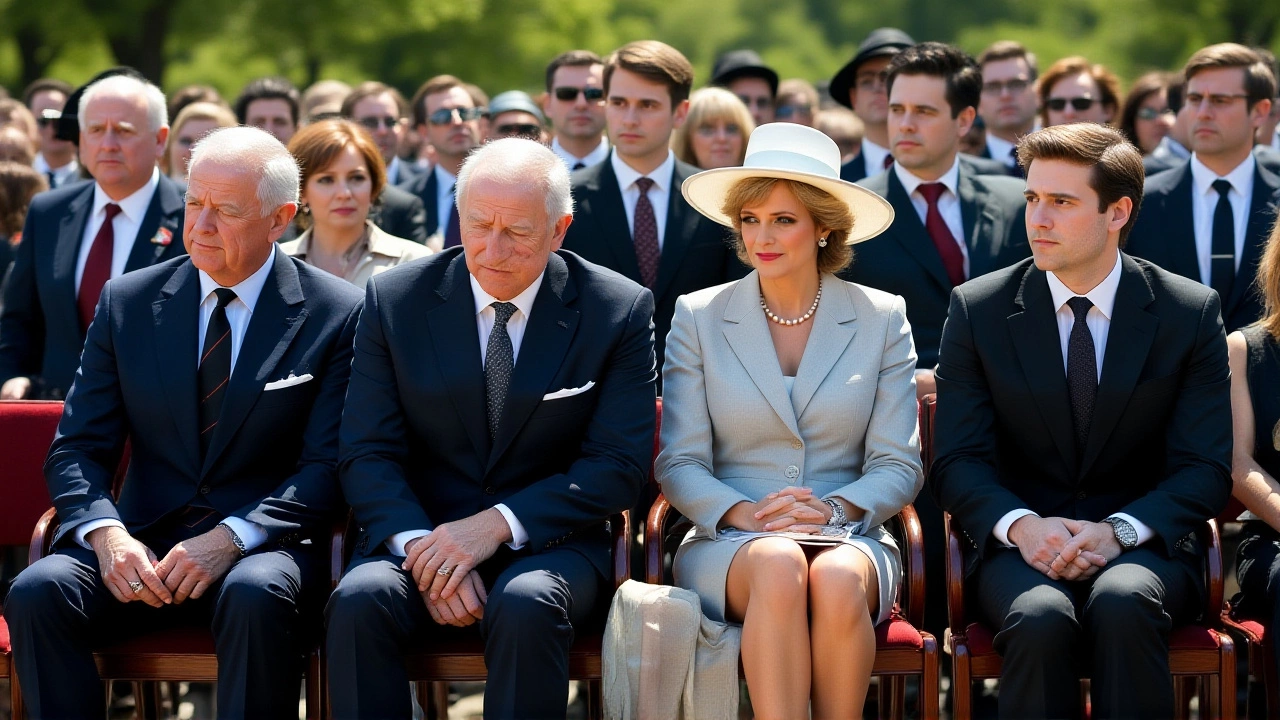
Behind the Scenes: A Visit Timed for History
The timing wasn’t accidental. The visit came just as Saudi Arabia prepares to host the G20 summit in 2026. By securing U.S. backing on nuclear tech and AI, Riyadh positions itself as a global tech hub — not just an oil producer. Meanwhile, Trump, eyeing a potential 2028 return to the White House, needed a foreign policy win. This was it. The Saudi delegation, which included 14 senior officials, arrived at Andrews Air Force Base on November 17, 2025, at 3:45 p.m. EST. The Oval Office meeting began at 10:00 a.m. the next day — a 1.5-hour session that became the most consequential since the 2018 Riyadh arms deal. The working lunch in the State Dining Room, held at 12:15 p.m., included a surprise dessert: baklava from a family-run bakery in Dearborn, Michigan — a nod to the U.S.’s Arab-American community.Frequently Asked Questions
Frequently Asked Questions
What does the $1 trillion investment from Saudi Arabia actually include?
The $1 trillion commitment spans four key areas: $350 billion in AI infrastructure and data centers, $250 billion in U.S. defense procurement (including F-35 jets and missile systems), $200 billion in civil nuclear technology partnerships, and $200 billion in renewable energy and hydrogen projects. These are not pledges — they’re binding MOUs with phased disbursement tied to U.S. regulatory approvals.
Is Saudi Arabia really going to get nuclear technology from the U.S.?
Yes, but under strict conditions. The agreement allows U.S. firms to provide low-enriched uranium fuel and reactor design support — not enrichment or reprocessing tech. Saudi Arabia has agreed to IAEA monitoring and a "gold standard" nonproliferation clause, meaning it will forgo uranium enrichment for 30 years. This mirrors the U.S.-UAE deal from 2009, but with tighter oversight.
How does this affect the Israel-Saudi peace process?
Saudi Arabia is now openly backing direct Israeli-Palestinian negotiations — a major shift. While it won’t recognize Israel publicly until a Palestinian state is established, it’s using its financial leverage to pressure both sides. Sources say Riyadh has already offered $5 billion in aid to the Palestinian Authority if they enter talks, and is quietly coordinating with Jordan and Egypt to create a regional mediation framework.
Why is Trump suddenly open to negotiating with Iran?
Trump sees Iran as a distraction from his core goals: isolating China and securing Middle East stability. He believes a limited deal — freezing Iran’s uranium enrichment in exchange for partial sanctions relief — could reduce regional tensions and free up Saudi Arabia to focus on economic diversification. His administration is reportedly in preliminary talks with Swiss intermediaries, but no formal offer has been made.
What’s the political fallout in the U.S.?
Republicans are largely supportive, seeing it as a win for American jobs and energy security. But Democrats, especially progressives and pro-Palestinian lawmakers, are alarmed. Senator Bernie Sanders called the nuclear deal "a dangerous precedent," while House Speaker Nancy Pelosi warned it could undermine the Iran nuclear deal (JCPOA) revival efforts. The Senate Foreign Relations Committee will hold hearings in January.
How does this change Saudi Arabia’s global standing?
It elevates Saudi Arabia from oil supplier to tech and energy partner. With U.S. backing on nuclear tech, AI, and defense, Riyadh can now compete with South Korea and the UAE as a high-tech hub. The $1 trillion investment also signals to China and Russia that Saudi Arabia is not locked into one alliance — it’s playing the long game, diversifying its global partnerships while keeping Washington close.
